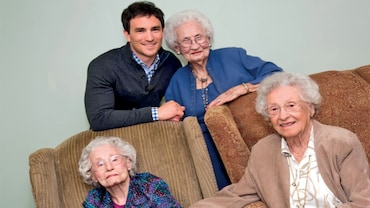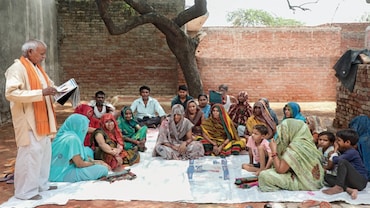Good Neighbours: Lessons From a Loaf of Bread
A heartwarming collection of stories about community and kindness
 Shutterstock
Shutterstock
On a warm summer evening in Surat, my wife and I were on our way to the grocery store, when I noticed a man sitting on the pavement under a street light. Something about him made me stop. He sat motionless on his haunches, his unwavering gaze fixed on an object only he could see. His beard was long and unkempt, much like the matted hair on his head. A discarded advertisement banner draped crudely around his waist was his only protection from the elements. The vacant look in his eyes indicated he was possibly incapable of normal mental function.
We tried asking him a few questions, but he showed no signs of having heard or understood us. He just sat there, staring into the darkness, oblivious to our presence. It was quite apparent that he was in need of help and we thought a while about what we could do. “He looks famished,” my wife remarked, “but there is no point in giving him money.” I agreed. “Let’s buy him a loaf of bread instead,” I suggested.
It took us a while to finish our shopping. When we returned to the spot where we had first seen the man, he wasn’t there. We looked around, but there was no sign of him.
Disappointed, we decided to go home, wondering what to do with the loaf of bread. We’d barely gone a hundred meters when we spotted him. Driven by hunger, he had crossed the road and was seated with a family of migrant labourers who had camped there. Surprisingly, none of the family members seemed to mind his presence. In fact, he looked to be quite welcome. The family had accepted him without question, just as they would a visiting relative or a close friend. Curious, I stopped my motorcycle in the shadows and watched.
It was dinner time and the family had gathered around an open fire over which a lady was roasting rotis on a tava. A dish of steaming rice and a pot of curry completed the menu. The beggar was eating hungrily from an aluminium plate—identical to the ones from which the family partook their meals.
Even as she rolled and roasted more rotis, the lady kept an eye on the stranger, making sure that his plate was not empty. She smiled as she watched him dig into the food clumsily, dropping every other morsel on to his chest and then to the ground. The other members of the family chatted happily as they ate, the rotis disappearing faster than the cheerful lady could make them. These were people who had no roof over their heads, people who were weary from a long day under the torrid summer sun, people who lived from one day to the next in the hope of getting some work and earning a few rupees to keep their tummies from growling.
We watched for a while. Then, overcome with guilt, we placed the loaf of bread near the man and rode away, but not before learning the true meaning of giving and sharing. That family was far from wealthy, but they shared what they had, not something they had no use for, or something they could easily afford, like a loaf of bread.
From the book A Quiet Understanding of God
Love this? Check more wonderful stories about neighbourly love here.






